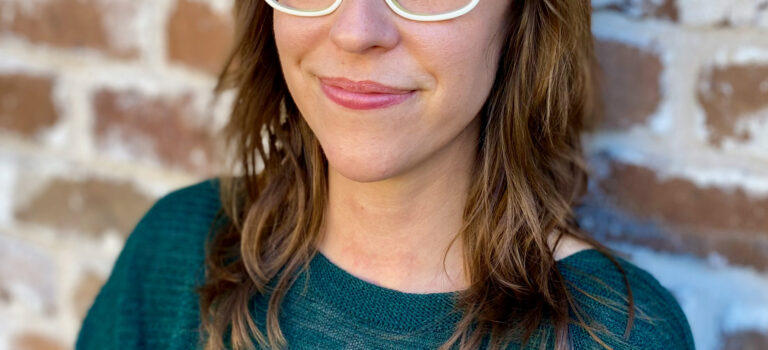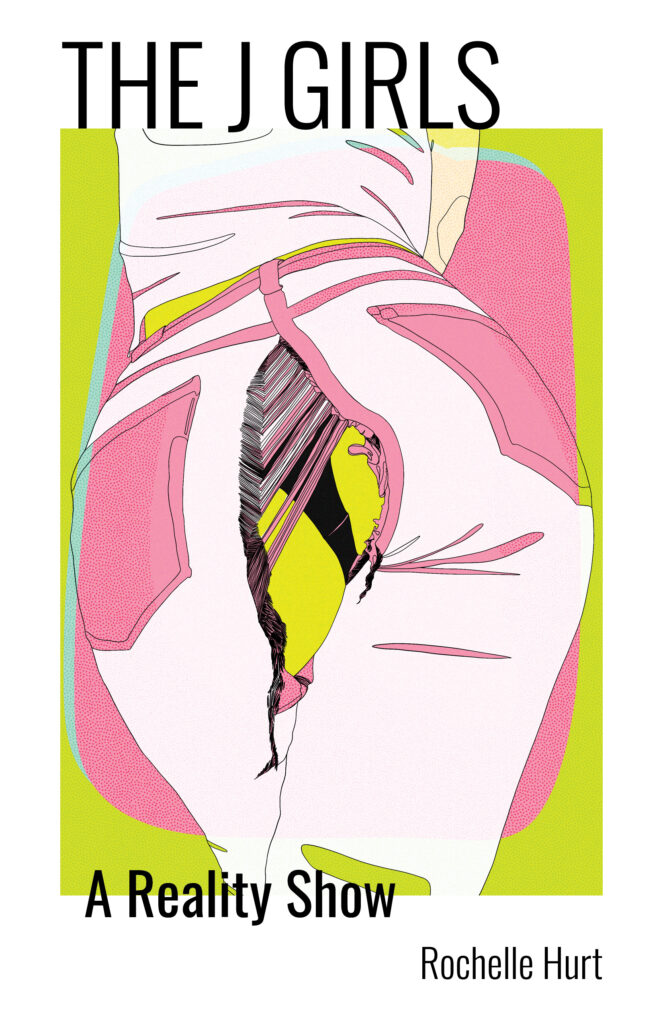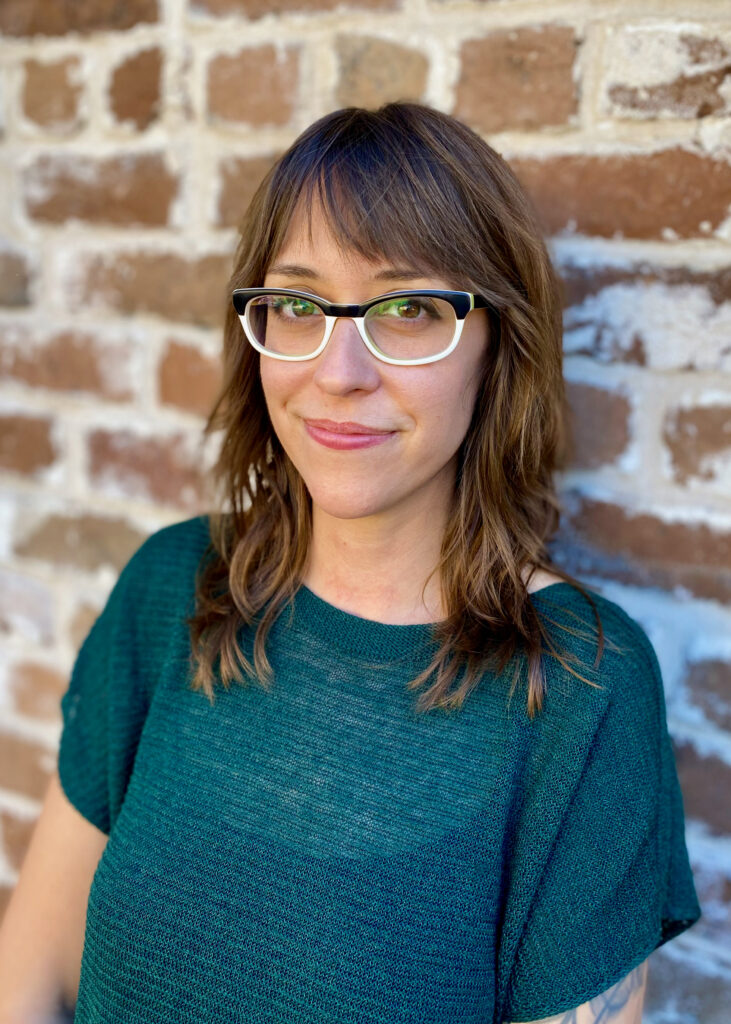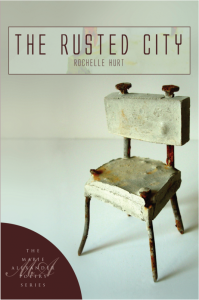Congratulations to Rochelle Hurt for her new poetry collection, The J Girls: A Reality Show, published by Indiana University Press. Meet Jocelyn, Jodie, Jennifer, Jacqui, and Joelle as they navigate growing up in the late 1990s. In this hybrid blend of poetry, screenplay, and drama, episodes capture moments of the girls’ adolescence, following them through every bad decision, poetic monologue, and campy performance where every girl experiments with who they are on and off screen.
Fierce, fresh, and playful, this book is something we’ve all been waiting for. From the descriptions of the Cast List to the End Credits featuring the “Beatitudes for Meek Girls,” the entire collection is a wild, candid ride through the highlights and critiques surrounding teenage life. The themes, much like the friendships within, transcend across every generation, unleashing the universality of self-discovery and the importance of creating a better world for girls.
Like the teenagers at its center, Rochelle Hurt’s The J Girls: A Reality Show is wild, smart, aching, and fearless. This genre-exploding book exquisitely captures the thrumming ecstasy and terror and guilt and bravado and tenderness and rage of adolescent girlhood. The J Girls understand that no girl is ever only one girl, and they claim themselves, in all of their iterations, again and again. This book is the bite-and-glitter I wish I’d had as a companion during my own high school years; I’m so grateful to have it now.
Catherine Pierce, author of Danger Days
The J Girls is available now from Indiana University Press, Bookshop, and Amazon.
We’re also very excited to share an interview that dives deeper into the collection and Rochelle’s inspirations and writing process behind it. This interview was conducted via email by our Blog Editor, Taylor Dilger.
Taylor Dilger: Could you describe some of your inspirations for this collection?
Rochelle Hurt: This book is a reflection of my own adolescence that is both fictionalized and deeply personal. It was heavily influenced by my own girlhood: the rust belt, Catholic school, church festivals, the wet n wild makeup section at Rite-Aid, girls’ bathrooms, single parents, Avon, hot dogs, belly-button rings, skunk highlights, Salt-N-Pepa, The Craft, But I’m a Cheerleader, Survivor, MTV, Jerry Springer, Ricki Lake, the Spice Girls, and PJ Harvey–as processed through some later influences: Reality Hunger, RuPaul’s Drag Race, Lana Del Rey, Baroque paintings, the Gurlesque, burlesque, Gwendolyn Brooks, Anne Sexton, Dolly Parton, Sylvia Plath, Sharon Olds, Harryette Mullen, Judith Butler, and just feeling out of place in academia. I wanted to write all the delicious trashy things that sophisticated culture tells me to hide.
TD: You combine poetry, screenplay, and drama together in a unique hybrid blend. Could you tell me more about this choice and why you decided to fit this piece in this particular form?
RH: While I was writing this book, I was also studying in a Ph.D. program and reading a lot of gender and queer theory on performance as a means of subversion. In a dramatic performance, one can control her own image and manipulate the audience’s gaze, sometimes by parodying the stereotypes that have been placed on her and exposing the scripts she’s been given as bogus. I knew that performance and camp had to be a part of these poems, so I thought about the ways that teen girls perform their identities in groups in order to understand and empower themselves. In the late 90s, when this book is set, reality TV was really taking off, and the ways in which reality so often seems “scripted” came into focus–the roles we’re supposed to play based on gender, class, race, sexuality. It was a toxic culture in many ways, and direct critique was just not available to many young women. So I wanted to give the teens in this book another way to process, perform, and parody their own reality as working-class girls while still allowing them to have fun and gain some agency.
TD: In “The Birth of Anger at the Roller-Skating Rink” you write, “Even my first kiss came / like an accidental slap from a strange man, who, / on his way across this very room to the arcade / or concession stand, tripped over me like a dropped / candy box and decided he wanted a piece, so took it.” Many of these poems cover women’s sexuality and identity. Could you elaborate on the importance of talking about these topics in our society today?
RH: Writing about the lives of women and girls is a form of resistance for me. American culture remains toxic in many ways, and while attitudes toward sexuality and women’s bodies have improved, we still see direct assaults on reproductive rights and LGBTQ rights in our political system, which is deeply racist, misogynistic, homophobic, and classist. We still live in a culture that objectifies and sexualizes women and girls while demonizing them for expressing their sexualities–particularly if they are working-class or women of color. We live in a culture that punishes women seeking abortions but gives second chances to rapists if they’re white and educated. I live in a state (Florida) that is currently trying to ban abortion after 15 weeks and to ban discussion of sexuality and gender identity in schools. They have already banned trans girls from playing sports in school. We haven’t made nearly enough progress in the last 50 years, and now it seems we may be going backward politically. Somebody once told me my poems were full of rage, and they were right.
Rochelle has four poems featured in Issue 11 and five poems Issue 25 in collaboration with Carol Guess. You can also check out her website, Twitter, and Instagram for more.



 Today we are pleased to share news about past contributor Rochelle Hurt. Rochelle’s essay “An Entrance, an Exit, an Entrance” has been included in The Orison Anthology, vol. 2. The anthology is available for purchase from
Today we are pleased to share news about past contributor Rochelle Hurt. Rochelle’s essay “An Entrance, an Exit, an Entrance” has been included in The Orison Anthology, vol. 2. The anthology is available for purchase from 
